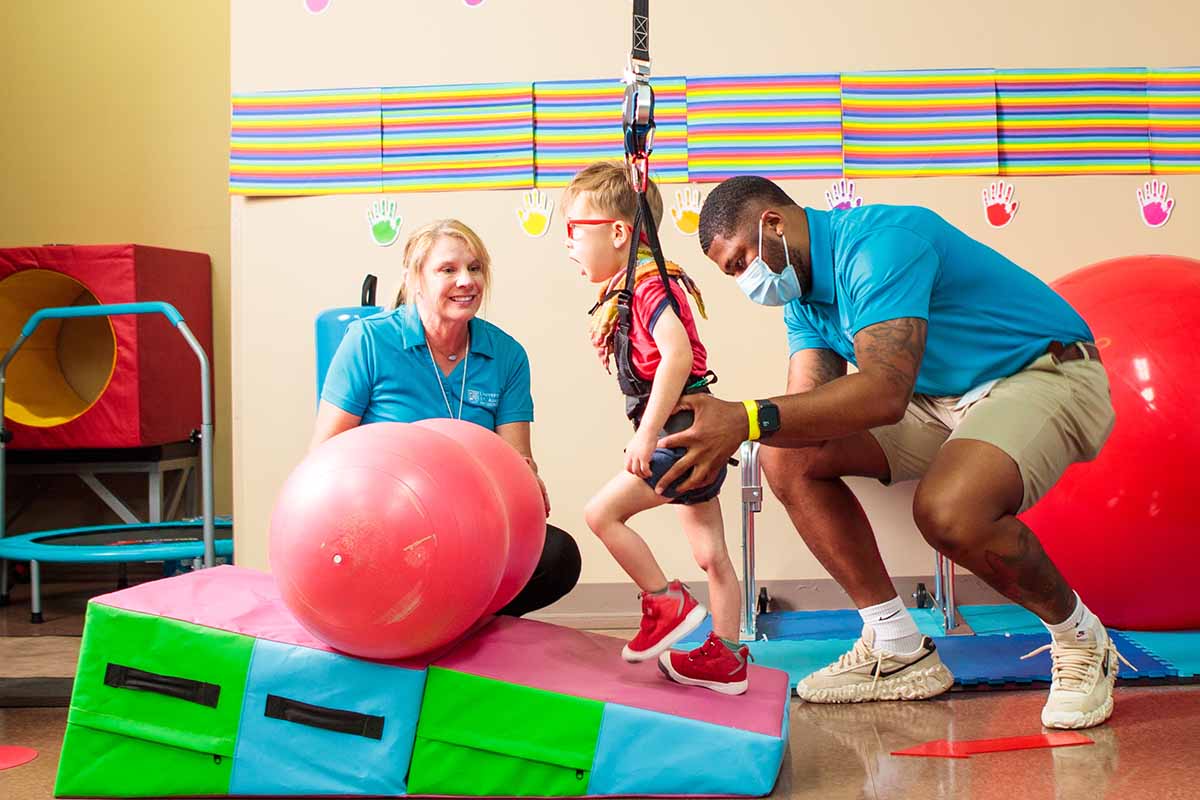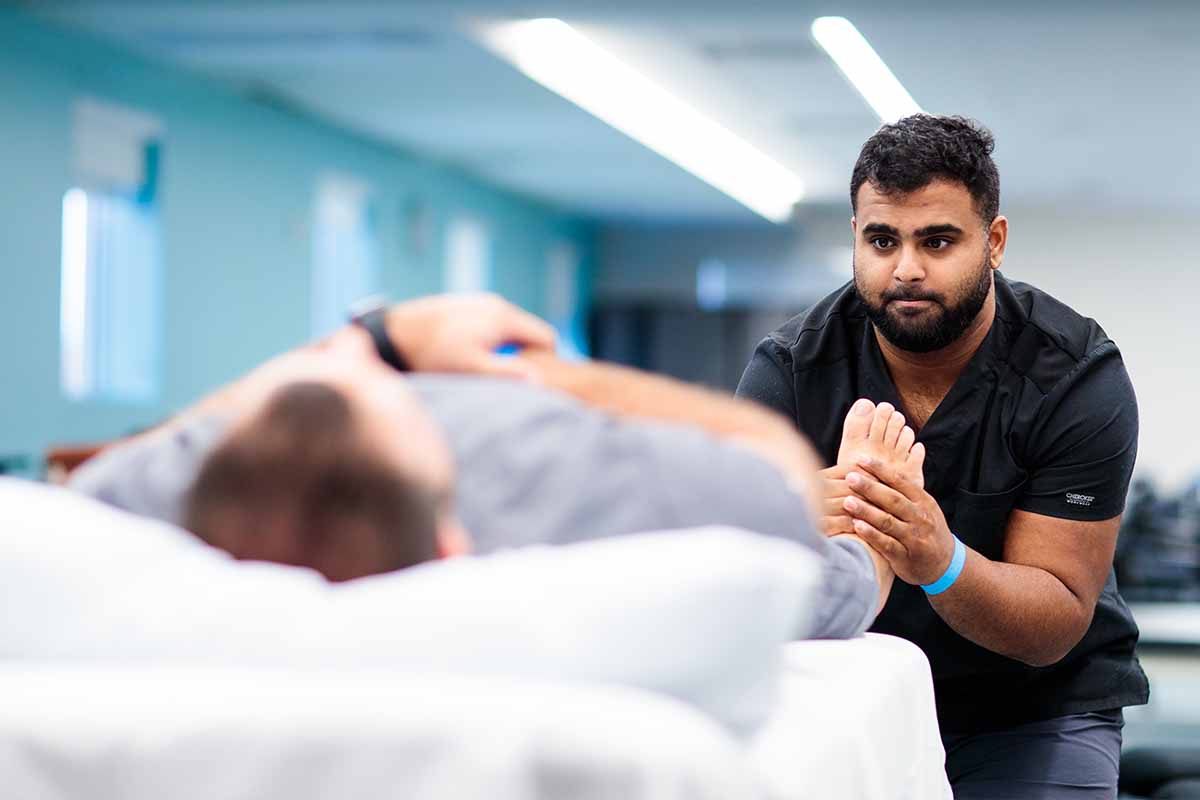At the Integrative Memory Enhancement Program (IMEP) center in St. Johns County, Florida, a program participant with aphasia has a total vocabulary of about five words.
Aphasia affects a person’s ability to express and understand written and spoken language. It can occur after a stroke or head injury or develop slowly from a growing brain tumor or disease.
 During a group sing-a-long activity at the IMEP center, this participant sang every single word to Jingle Bells. The emotional response to the song triggered cognitive activity, helping her remember the lyrics and expanded her vocabulary beyond those five words.
During a group sing-a-long activity at the IMEP center, this participant sang every single word to Jingle Bells. The emotional response to the song triggered cognitive activity, helping her remember the lyrics and expanded her vocabulary beyond those five words.
“I always tell this story,” IMEP student worker Zachary Riley said. “That was one of my most eye-opening moments of the program, like, wow, this really does work.”
Riley is a Doctor of Physical Therapy student at University of St. Augustine for Health Sciences at the St. Augustine campus and a student worker through the federal student work-study program. He started working with IMEP because he wanted to get involved in a research-based work-study program.
What is IMEP?
IMEP is a research-based response to memory loss program designed for use in a classroom setting and created by the Council on Aging (COA). The program connects the mind, body and brain to boost cognitive reserve and slow the progression of memory loss.
Although Riley has a background and heavy interest in athletic training, he enjoys working with the program participants and has taken an interest in how physical activity affects neurological impairment.
IMEP and Memory Loss


A typical day at the IMEP center includes stretching, breathing exercises, brainteaser games, topic discussion, and physical exercise. Discussion topics and sing-a-long activities are meant to stimulate an emotional response or trigger a memory that can also spark cognitive ability like the woman who remembered the lyrics to Jingle Bells.
Riley said that another important component of the IMEP program is the socialization the participants get to experience. Memory loss can be embarrassing to admit and scary to face alone. Many participants are thankful to have a community of people who understand what it’s like to go through memory loss.
“It makes them feel that they aren’t alone,” Riley said. “They still have value to life.”
Riley is helping the program transition from a research-based program to an evidence-based program. He organized and implemented an evidence-based project at St. Johns IMEP center where he administers assessments to participants and tracks their results for further analyses and study.
“Having Zack help out in IMEP has been a tremendous benefit to both the IMEP participants and the IMEP facilitators,” COA IMEP Manager Michele Sanchez said. “We are deeply appreciative of his time, interest, and support.”
Riley is

“It really teaches you how to communicate better with future patients in your potential career as PT or OT,” he said.
Participants in the program regularly approach Riley to show him they are improving. He feels honored because they recognize the role Riley has played in their progress.
“I could not make a full sentence, before I came here. Now, I can speak full sentences. I can say anything I want. I can write poetry, read out loud without stuttering or stopping to think of what I want to say. This is a great place to learn and make good friends. I am fortunate to be able to be here,” one five-year IMEP participant said.
Riley hopes other students at USAHS will follow his example, continue to participate in IMEP and help the program grow.








